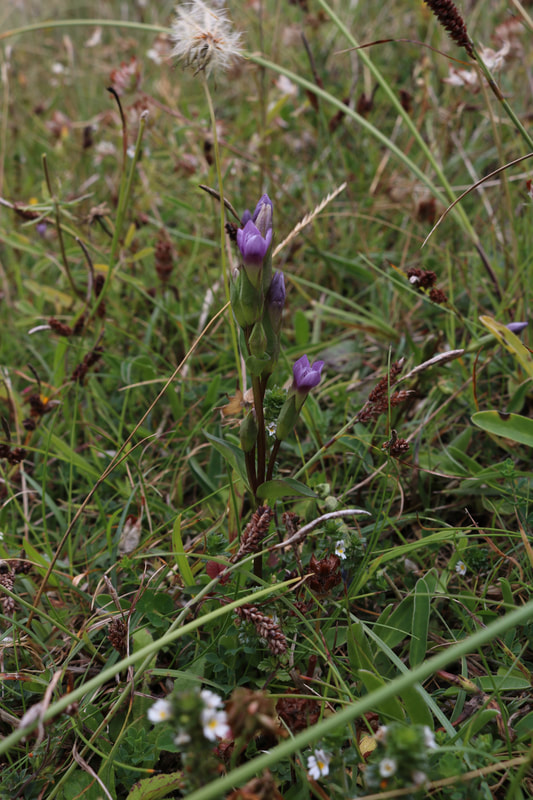
History
The NWRPI was established in formally in August, 2017 by Josh Styles as a response to the drastic decline of a range of species across vice counties 58 (Cheshire), 59 (Merseyside & South Lancashire), 60 (North Lancashire) and 69 (South Cumbria). Joshua has had in excess of 15 years of botanical recording and cultivation experience of indigenous plant species over a large range of taxa and is currently in cultivation of over 200 species.
The NWRPI was established in formally in August, 2017 by Josh Styles as a response to the drastic decline of a range of species across vice counties 58 (Cheshire), 59 (Merseyside & South Lancashire), 60 (North Lancashire) and 69 (South Cumbria). Joshua has had in excess of 15 years of botanical recording and cultivation experience of indigenous plant species over a large range of taxa and is currently in cultivation of over 200 species.
Field Gentian (Gentianella campestris) - vulnerable in the NW and red-listed as 'Endangered' in England
Aims
The aims of the NWRPI are numerous, though all aims focus on the clear main objective - to halt the decline of the rarest plant species present in NW England. Aims include:
- To encourage cooperation and favourable management with landowners
- To give advice to landowners as to the best management practices for their sites
- To establish a network of experienced propagators across the country involving NWRPI priority species
- To collaborate with various conservation and statutory bodies across NW England, working towards conserving the most vulnerable indigenous plant species regionally
- To provide surveys (free of charge) to determine site suitability with the inclusion of National Vegetation Classification surveys (read more about the NVC here: http://jncc.defra.gov.uk/page-4259)
- To establish a network of viable receptor sites for NWRPI priority species across the North-West
It must be borne in mind that re-/introduction is not a process done simply on a whim, but with strong justification of why a reintroduction would be necessary with forethought of continued management of the area of introduction and extant site conditions and with the condition of relevant landowners and statutory authorities. To view a brief overview of the protocol followed by the NWRPI, click on the "Reintroduction Protocol" download link below.
The aims of the NWRPI are numerous, though all aims focus on the clear main objective - to halt the decline of the rarest plant species present in NW England. Aims include:
- To encourage cooperation and favourable management with landowners
- To give advice to landowners as to the best management practices for their sites
- To establish a network of experienced propagators across the country involving NWRPI priority species
- To collaborate with various conservation and statutory bodies across NW England, working towards conserving the most vulnerable indigenous plant species regionally
- To provide surveys (free of charge) to determine site suitability with the inclusion of National Vegetation Classification surveys (read more about the NVC here: http://jncc.defra.gov.uk/page-4259)
- To establish a network of viable receptor sites for NWRPI priority species across the North-West
It must be borne in mind that re-/introduction is not a process done simply on a whim, but with strong justification of why a reintroduction would be necessary with forethought of continued management of the area of introduction and extant site conditions and with the condition of relevant landowners and statutory authorities. To view a brief overview of the protocol followed by the NWRPI, click on the "Reintroduction Protocol" download link below.
Funding from
Contact us by email: [email protected]




